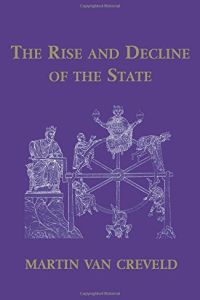Join getAbstract to access the summary!

Join getAbstract to access the summary!
Martin Van Creveld
The Rise and Decline of the State
Cambridge UP, 1999
What's inside?
Some say that globalization means the end of the state. But what was its beginning?
Recommendation
In this comprehensive history of the modern state, author Martin Van Creveld weaves together disparate threads and illuminates hidden connections in forceful, energetic language. Thus, his book is both scholarly and entertaining. Van Creveld takes a generally dim view of governments and the state. The greater the state’s power, the more he regards it as a monstrosity, and he’s not shy about saying so. The anti-government political right will like this book, but Van Creveld’s greatest contempt is reserved for nationalism, militarism and the state at war, which ought to entertain the left. He sees the state as a dubious, archaic institution and, as his narrative shows, his position transcends notions of conservative and liberal. Readers are likely to think of their nations differently after reading this book, which getabstract.com recommends primarily to students of politics and government and policy makers.
Summary
About the Author
Martin Van Creveld is a professor in the Department of History at the Hebrew University in Jerusalem. His previous books include Supplying War, Fighting Power, Command in War, Technology and War, and The Transformation of War.
















Comment on this summary